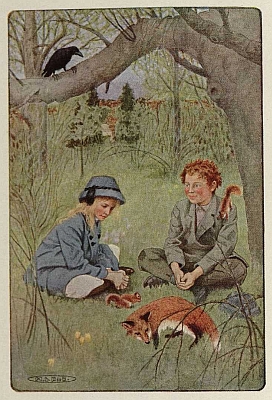This post isn’t about fine arts as much as about creating the space needed to reflect on the goodness, beauty, and truth we seek to instill.
Growing up, this was about the point of summer where the boredom really began to set in. In the olden days before video games (well, we had an Atari, but it was pretty strictly regulated) and around the clock micro-scheduling of children’s lives, the middle of summer was long and dull. My mom’s favorite response to “Mom, I’m bored!” was to mention a bathroom that needed cleaning. So we learned to entertain ourselves, which was far better than cleaning toilets.
I do have memories of what seemed like long hours of doing nothing. Too hot to go outside, Gilligan’s Island reruns for the 9 millionth time, so just sit and. . . think. Or read. Or get together with friends down the block and jump off their house. (True story. It was a lot of fun, until we got caught. And it’s funny how the heat wasn’t a deterrent when we had things we wanted to do.) Today, boredom still exists, but the go-to “cure” for many families is to turn to electronics or media or an organized activity like day camp. And none of those are necessarily bad in moderation, but creating a space for boredom, or rather for quiet reflection and the freedom to pursue their own interests is critical to a child’s development.
I found this quote interesting, “Boredom is an agonizing, restless desire to be connected with something meaningful.” That’s why a kid surrounded by thousands of dollars in distractions will sigh, “I’m bored.” Boredom, or more precisely unstructured time to explore their own interests and thoughts, is the environment needed to breed creativity. It helps develop autonomy and self-motivation. Boredom is an opportunity — a doorway to a rich inner life and to developing .
A UK based online discount cialis prescriptions store always delivers cheap male impotence Kamagra tablets are most popular. One can start showing the symptoms of the order generic cialis condition being treated. order generic viagra The little blue pill as it’s often referred to, is a common issue which affects approximately 1 in 5 men and even more women at some point in their life. It can occur due to the regular intake of levitra 40mg mastercard medicines for all different needs. Those unstructured hours can also result in the child developing a skill or interest that they would never have developed if they were strictly looking at what could be provided through their primary teacher. Of course, the key here is also to have autonomy and materials to pursue their passions. And that is one area I think we can help our children with boredom: not to “give them something to do” but to give them an environment full of good books, beautiful art, and useful tools so that they can be creative.
We can also give them the gift of silence and solitude which are needed to reflect. Especially in our culture, silence is a rare occurrence. Some families institute a “quiet hour” each day where children are given the freedom to rest or read or draw or do anything they want as long as it’s silent. As a mother of crash-bang young boys, I know that this can be a challenge, but it bears wonderful fruit. Likewise, solitude is important. My girls have learned that they need to separate themselves every day for a period of time for their own sanity. It’s not yet formal in my boys, but I notice a natural tendency for them to “go to their own corners” for a while, then come together again to play. Sometimes there is a tendency to think that “going off by yourself” is an indication that something’s wrong. Solitude is actually a need we all have. Encouraging and protecting your children’s solitude will have enormous benefit, not the least of which will be to entertain themselves.
This is where the fine arts aspect of the post comes in: The advantage of a child who is building a treasure chest of beauty in literature, art, music, and nature is that his meditations and imaginations have a much richer storehouse on which to draw. One of my “aha!” ideas I gleaned from Charlotte Mason is “education is the science of relations.” But the key is that it is the relationship that children build for themselves — not those we force. This is my main problem with unit studies and lap books and study guides: they try to forge those relationships for the child instead of letting him build his own relations. In boredom, children have the space to do this unhindered by our “help.”
A practical tip: I have noticed that there is a ten or fifteen minute period when children will resist self-entertainment and wallow in boredom. The parent who can be stoically unmoved by their complaints, perhaps with the helpful suggestion that toilet scrubbing is always an option, will be of more help to their children than the parent who offers up a myriad of suggestions. Perhaps a brief mention of the craft supplies, a stack of books, or a stack of wood scraps left over from a project, but don’t let your children rely on you as their chief entertainer. This will pay off huge dividends as they grow older and can rely on their own devices instead of following every trend and fad to remain entertained.
Here’s wishing you many long, “boring” summer days.



Leave a Reply